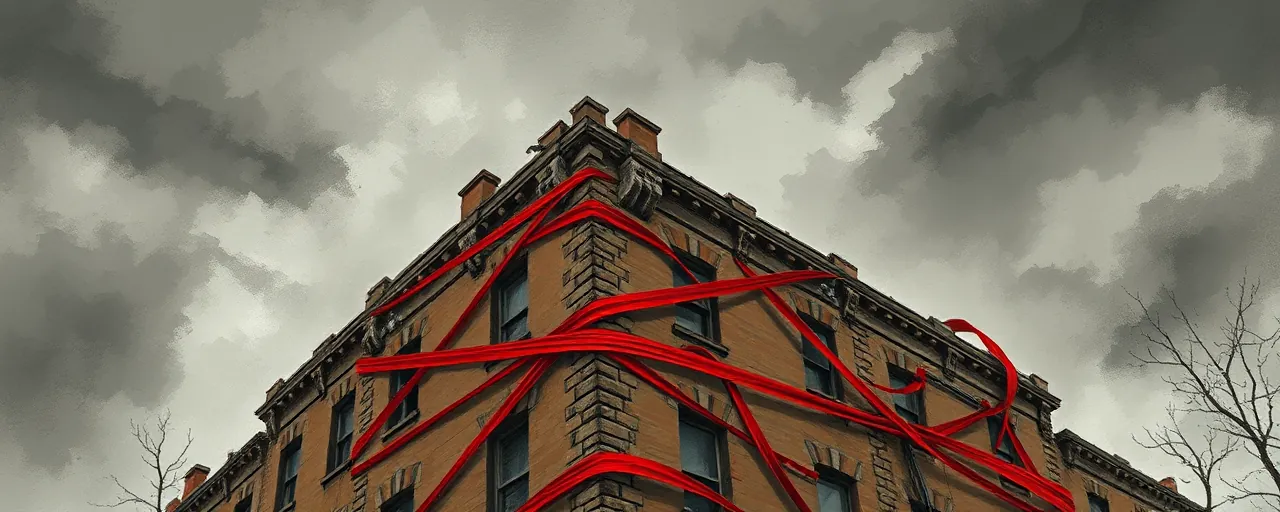A State Under Siege
New Yorkers are reeling. Governor Kathy Hochul paints a grim picture of economic chaos, blaming President Trump’s first 100 days for skyrocketing costs, job losses, and slashed federal funding. Her narrative, dripping with alarm, pins the state’s woes on tariffs and budget cuts, claiming they’ve gutted everything from small businesses to Social Security offices. But let’s cut through the noise. The real story isn’t Trump’s policies; it’s New York’s addiction to federal handouts and bloated government programs that’s dragging the state into a fiscal abyss.
Hochul’s dire warnings about $7 billion in economic losses and 280,000 vanished jobs sound catastrophic. Yet her rhetoric sidesteps a critical truth: New York’s economy was already fragile, propped up by unsustainable federal spending and overregulation. The S&P 500’s 8% dip, the worst since the 1970s, isn’t just about tariffs; it’s a market reacting to decades of fiscal irresponsibility. New York, as a global financial hub, feels the tremors, but blaming Trump alone is a convenient dodge.
The governor’s multi-state lawsuit against Trump’s tariffs and her court battles to restore federal funding reveal a deeper issue: a state government hooked on Washington’s largesse. Instead of embracing fiscal discipline, Hochul doubles down on dependency, crying foul when the federal spigot slows. This isn’t leadership; it’s a refusal to face reality. New Yorkers deserve better—they need a state that stands on its own, not one groveling for scraps from a bloated federal machine.
From shuttered Social Security offices to paused wind projects, Hochul’s laundry list of grievances reads like a plea for more government. But conservatives see through the spin. The chaos she decries isn’t the fault of Trump’s policies; it’s the inevitable fallout of a state and federal system that’s grown too big, too wasteful, and too disconnected from the people it claims to serve.
Tariffs: A Necessary Evil
Hochul wails about Trump’s tariffs, claiming they’ll cost New York families $6,400 each and cripple small businesses. She points to Alcoa’s $20 million hit on Canadian imports and the Cortland Standard’s closure, blaming a 25% tariff on paper. But tariffs aren’t the boogeyman she makes them out to be. They’re a tool—imperfect, yes, but vital for leveling a trade playing field tilted against American workers for decades. Historical data backs this: high tariffs in the 19th century fueled industrial growth, protecting jobs and boosting revenue. Trump’s 2025 tariffs, projected to raise $5.2 trillion over a decade, aim to do the same, cutting the national debt and fostering self-reliance.
Sure, tariffs raise prices—apparel’s up 17%, and the average household’s out $3,800. But that’s a short-term sting for long-term gain. New York’s manufacturers, like those in the North Country, face higher costs, but the alternative is worse: unchecked imports flooding markets, hollowing out industries, and leaving workers jobless. The governor’s sob stories about canceled orders and stranded shipments ignore the bigger picture. Tariffs force businesses to adapt, innovate, and prioritize American-made goods. That’s not chaos; it’s a wake-up call for a state too cozy with globalism.
Hochul’s claim that tariffs tanked tourism, with Canadian bridge crossings down 23,000 in March, misses the mark. Yes, trade spats and tough rhetoric have cooled cross-border travel—Canadian tourism’s off 18%. But pinning it all on Trump ignores New York’s own failures: high taxes, stifling regulations, and a tourism industry that’s priced itself out of reach for many. The real fix isn’t begging Canada to come back; it’s making New York a place people can afford to visit.
Federal Cuts Expose State Weakness
The governor’s panic over $1.3 billion in federal funding cuts—hitting everything from Medicaid to AmeriCorps—reveals a state unprepared to function without Washington’s crutches. Take the $300 million slashed from infrastructure or the $325 million yanked from disaster resilience programs. These hurt, no question. But they also expose New York’s reckless reliance on federal dollars to paper over its own budgetary mismanagement. States like Texas and Florida thrive with leaner budgets, prioritizing local solutions over federal bailouts. Why can’t New York?
Hochul’s horror at the closure of three Social Security offices and the gutting of heating assistance programs tugs at heartstrings, but it dodges accountability. New York’s sky-high taxes and runaway spending have left it vulnerable to federal belt-tightening. The state pulls in $5.5 billion annually from the Department of Education alone, yet schools struggle, and kids fall behind. If that’s not a sign of misallocated resources, what is? Cutting federal bloat isn’t the problem; it’s the start of a solution, forcing states to streamline and prioritize what actually works.
The pause on Empire Wind, which Hochul says threatens thousands of jobs, is another red herring. Green energy projects, often propped up by federal subsidies, promise much but deliver little. The real energy solution lies in unleashing New York’s natural gas reserves and cutting red tape for private investment, not chasing windmills that cost taxpayers billions. Trump’s cuts aren’t reckless; they’re a call for states to stop outsourcing their futures to Washington.
The Path Forward
New York’s economic turmoil isn’t Trump’s fault; it’s the predictable result of a state and federal government that’s lost its way. Hochul’s lawsuits and finger-pointing won’t fix the $7 billion hole in the economy or bring back the 280,000 lost jobs. The answer lies in conservative principles: lower taxes, less regulation, and local control. States that embrace these ideas—think Florida’s booming economy or Texas’s job growth—show what’s possible when government gets out of the way.
New Yorkers aren’t helpless. They’re hardworking, innovative, and ready for a state that trusts them to thrive without federal strings attached. Trump’s tariffs and cuts, while painful, are a chance to rethink New York’s priorities. Slash taxes to keep businesses here. Deregulate to let small manufacturers compete. Invest in real infrastructure, not pipe-dream green projects. The chaos Hochul decries is an opportunity—a chance for New York to break free from Washington’s grip and build an economy that works for its people, not bureaucrats.
